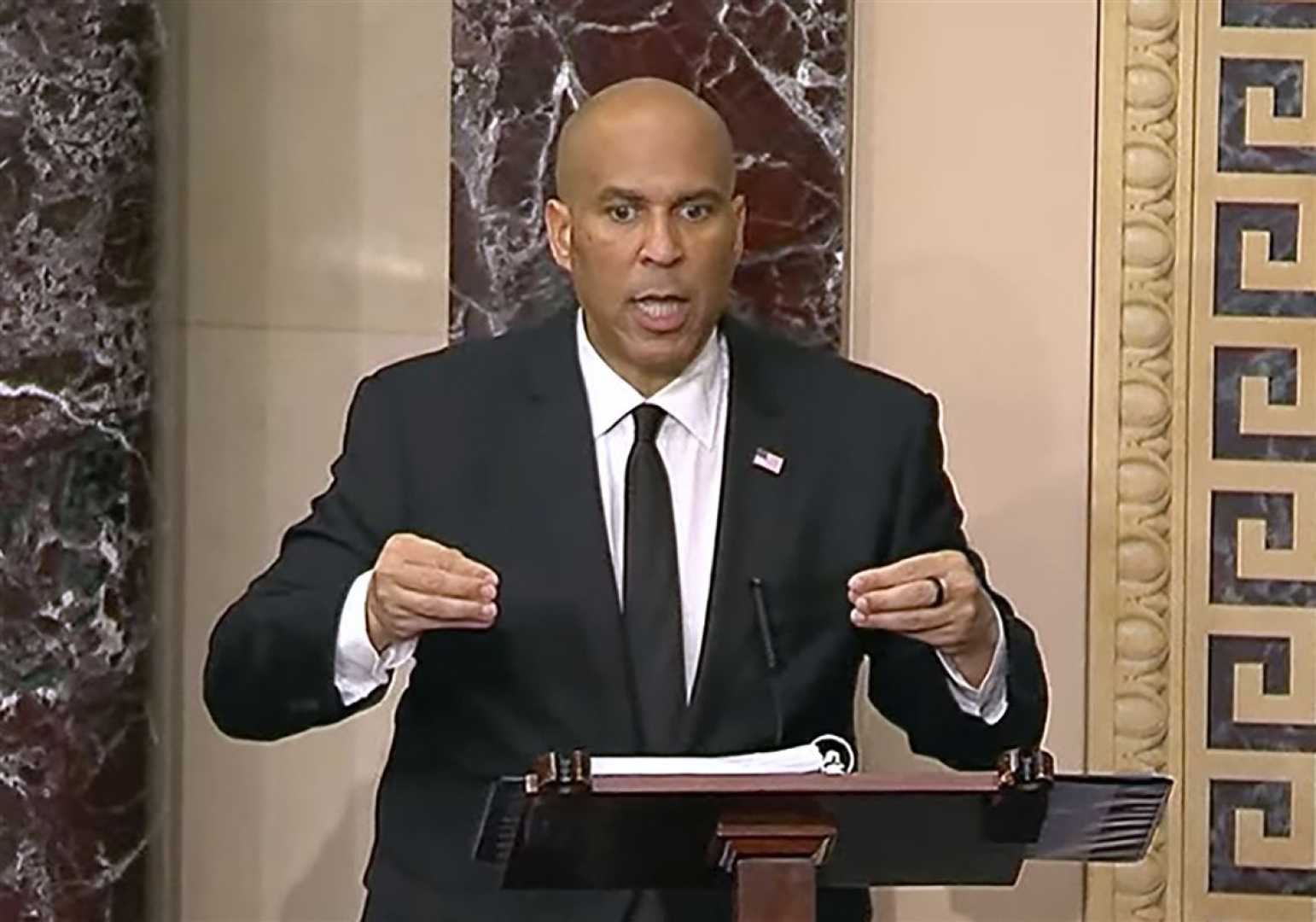Politics
Cory Booker Shatters Senate Speech Record with 25-Hour Filibuster

WASHINGTON, D.C. — New Jersey Democrat Cory Booker made history this week by delivering the longest speech in U.S. Senate history, speaking for more than 25 hours to protest President Donald Trump‘s policies. Initiated on Monday evening and concluding at 8:05 p.m. Tuesday, Booker’s oratory marathon eclipsed the previous record set by Strom Thurmond in 1957 by nearly an hour.
Booker’s speech was driven by his belief that the country is facing a moral crisis. “I stand up with the intent to disrupt the normal process of the U.S. Senate while I am physically able. I stand up tonight because I sincerely believe that our country is in crisis,” he declared at the onset of his address.
The senator referenced letters from constituents and extensive materials provided by his staff as he articulated his objections to Trump’s policies. Notably, he emphasized the importance of civic engagement and even evoked the words of civil rights leader John Lewis, urging Americans to partake in what he termed “good riots” in light of the current political climate.
In a feat of endurance, Booker could not leave the Senate floor to attend to any personal needs, in accordance with the chamber’s rules governing filibusters. During his marathon, he stood the entire time, reportedly asking aides to remove his chair to resist the temptation to sit down.
Booker’s grueling effort highlighted not only his political resolve but also the physical and mental challenges of such a continuous performance. Experts noted that remaining upright for extended periods can induce fatigue and pain, particularly in the legs and lower back.
Two hours, 45 minutes into his speech, Booker began displaying signs of physical strain, leaning against the podium and shifting his weight continuously. Despite these challenges, he pressed on, his remarks emphasizing the gravity of what he described as the “moral question” facing the nation.
An array of studies illustrates the effects of sleep deprivation and prolonged standing on cognitive function. Booker’s mental stamina was tested, with experts likening the cognitive effects of being awake for 24 hours to having a blood alcohol content of 0.1. Dr. Garston Liang, a workload expert, characterized Booker’s speech as a “gargantuan cognitive effort,” noting the unique challenges posed by extreme fatigue and heightened mental demands.
The senator’s unprecedented endurance ultimately raised questions not only about the physical toll but about the future of such political demonstrations. As he concluded his historic address, Booker pulled out a slip of paper citing the Book of Isaiah: “But they that wait upon the Lord shall renew their strength; they shall mount up with wings as eagles; they shall run, and not be weary.” This affirmation of his faith served as a poignant reminder of the psychological resilience required to undertake such a monumental task.
Throughout the course of the speech, lingering questions remained about what physical preparations other senators might take should they attempt to break Booker’s record. Dietary adjustments, hydration strategies, and even sleep management are critical considerations for anyone looking to replicate his success, especially given the notable risks associated with dehydration and muscle fatigue during extended periods without nourishment.
Ultimately, Cory Booker’s remarkable achievement exemplifies the lengths to which politicians may go to voice their convictions, establishing a new benchmark in the dynamic intersection of politics and endurance.












